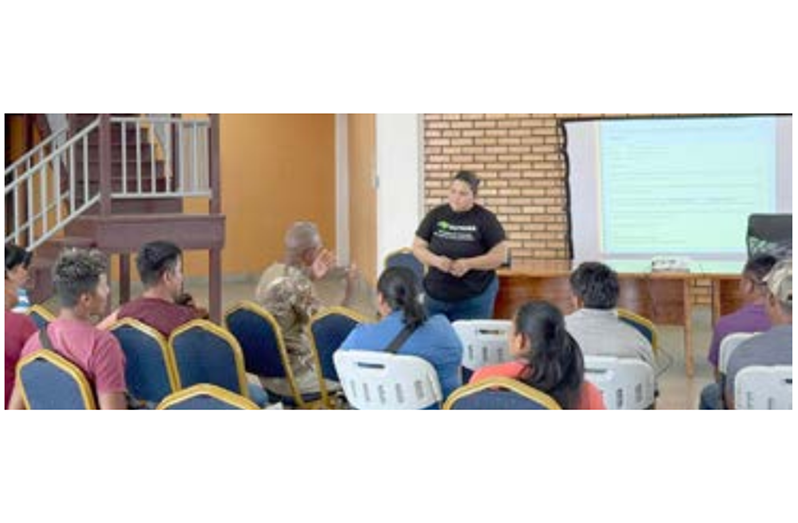-as demand for new experiences grows
AS Tourism Month comes to an end, the Guyana Tourism Authority (GTA) said tourism-development efforts across the country have been accelerated, accompanied by unprecedented growth in the sector which was highlighted recently with the launch of seven new immersive tourism experiences.
According to Senior Product Development Manager at the GTA, Candace Phillips, this development is being pushed by stronger partnerships, a surge in new tour operators and an increased demand for diversified travel experiences. This momentum, Phillips said, is reshaping how new destinations and products come on stream.
In an interview with the Guyana Chronicle, Phillips highlighted the robust, collaborative process needed for a tourism business to be launched.
She explained that developing a tourism product begins with interest from communities or private operators, who often approach the GTA seeking support to build or refine experiences in their areas.
“Our job is basically to work with Indigenous communities or the private sector towards developing new tourism experiences,” she said, noting that engagement can start with a village council reaching out, an operator requesting assistance, or even the authority identifying a promising location through social media.
Once contact is made, the team conducts a thorough site or product assessment to determine whether an experience is viable. This includes checking market interest, safety, investment needs and whether the product aligns with current traveller demand. “We would go to a location or to try the product to determine viability, if it can actually work, if there is a target market for it. Are there guests who are going to be willing to come to a particular location for a particular experience? Does it make sense to put investment into this? Or is it just one of those things that will never quite develop because there isn’t an interest?” Phillips further explained.
A core part of the GTA’s work involves capacity building. Phillips highlighted that community-based tourism operators and guides receive training in areas such as CPR and first aid, culinary skills, packaging and pricing, mixology, tour guiding and operations management. The aim is to ensure that stakeholders understand the tourism ecosystem and are equipped to serve their target markets.
But the work does not stop at capacity building as after a product is developed, the GTA conducts several rounds of testing to ensure safety and quality before any public launch. Development cycles can vary significantly says Phillips, with some ventures taking a year. But in other cases, it can stretch over a few years depending on how quickly communities or operators advance.
Phillips noted that the sector has undergone a noticeable transformation in the last few years, which ushered in a new wave of operators such as Blackwater Adventures, Wanderlust Adventures Guyana and 592 Tours.
“With having new blood, we saw the interest in diversifying the Guyana product portfolio,” she said, adding that these entrants have pushed into new areas, introduced fresh concepts and added creative additions to common experiences such as the Georgetown city tours. This diversification has broadened the options available to domestic, business and international tourists seeking to experience Guyana.
Collaboration among operators has also increased, something she believes has strengthened product quality and broadened the overall market. The GTA itself has expanded its presence, working with more communities and partnering with a wider range of tour companies than ever before.
The authority now records its highest number of licensed tourism enterprises and has significantly increased the number of trained tour guides. From a marketing standpoint, the GTA has engaged multiple international representation firms and boosted Guyana’s global visibility. “For a small agency, we are basically diversifying ourselves, elevating the work that we do across Guyana,” Phillips said.
Looking ahead, the GTA is prioritising stronger regional tourism associations, which Phillips believes are essential for decentralised development. “Each region and each location being developed based on their unique offering. Not trying to replicate, but trying to complement and see how you can create diversity and add more options to the tourism offering from the country.”
Phillips emphasised that tourism works best when every experience is interconnected. “Now more than ever we need a sector that really demonstrates that no human is an island, that every experience hinges on another one,” she said, before emphasising that the GTA remains focused on sustaining growth and expanding the country’s tourism footprint, safely and sustainably.



.jpg)









